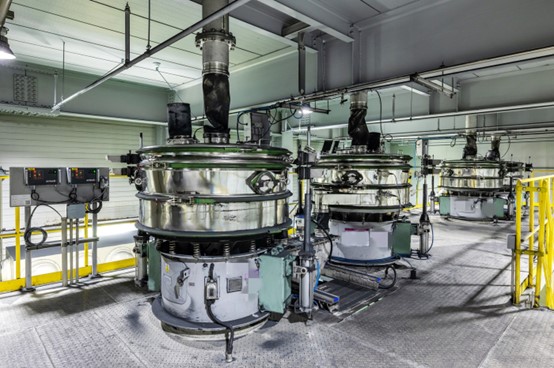


Please enter your registered phone number below to receive the verification code
South Korean battery material manufacturer EcoPro BM is in close discussion with a domestic automotive manufacturer in Korea to produce sodium-ion battery cathode materials as an alternative to lithium-ion batteries for electric vehicles (EVs).


EcoPro BM's cathode material production line (from KED)
Sodium-ion batteries are widely considered as a supplement to lithium-ion batteries due to their high resource abundance, potential low cost, good charging performance and low-temperature performance, but also due to their relatively lower energy density. However, as sodium-ion battery technology is not yet fully mature and the prices are relatively high, coupled with the decline in lithium prices, sodium-ion batteries will need more time to show their cost advantage over lithium-ion batteries.
"In the current situation where demand for electric vehicles is weakening, sodium-ion batteries are difficult to become a substitute for lithium-ion batteries because lithium is cheap enough," said a senior executive of a South Korean battery company.
EcoPro believes that it has surpassed China in the production technology of sodium-ion battery cathode materials and stated that it can upgrade sodium-ion battery technology to the level of lithium iron phosphate batteries within one to two years.
South Korean battery companies, due to their focus on nickel-manganese-cobalt technology routes, are generally lagging behind their Chinese competitors in the field of lithium iron phosphate batteries.
At present, CATL's sodium-ion batteries have been supplied to Geely Automobile for vehicle assembly, and companies such as HiNa Battery and Farasis also have sodium-ion battery models that have been installed.
2024-12-15
2024-12-14
2024-12-11
2024-12-11
2024-12-10

Electric Vehicle | Huawei HIMA Launches Two New Models of AITO M7 Pro and LUXEED R7

Solid-State Battery | QuantumScape Starts to Deliver QSE-5 B Sample Solid State Prototype Cells for OEM Testing...

Lithium-ion Battery | CATL Plans to Expand 60 GWh Battery Capacity in Luoyang
Electric Vehicle | BYD Launches D-Class Luxury Models Denza Z9GT and Denza Z9
LFP | LBM's First Overseas Lithium Iron Phosphate Plant Settles in Indonesia
Solid-State Battery | LiPURE Energy: the First All Solid-State Lithium Battery Mass Production Line Officially Launched in China...
Cathode Material | Easpring Keeps Growing LFP/LMFP Business, with Diversified Cathode Materials
Electric Drive | BYD Innovates Technologies for Full Vehicle Platforms, with e3 Driving Luxury Brand Denza...